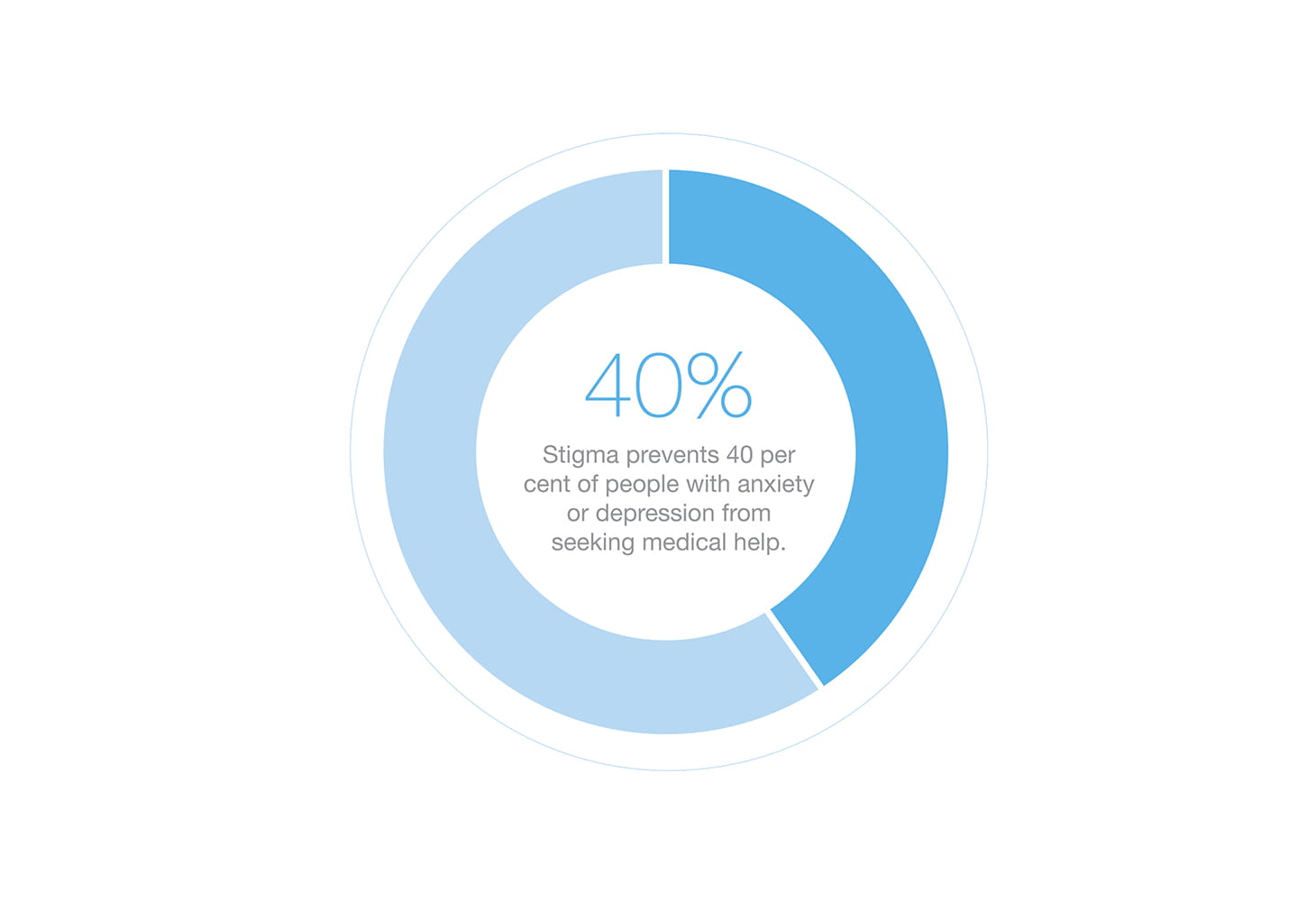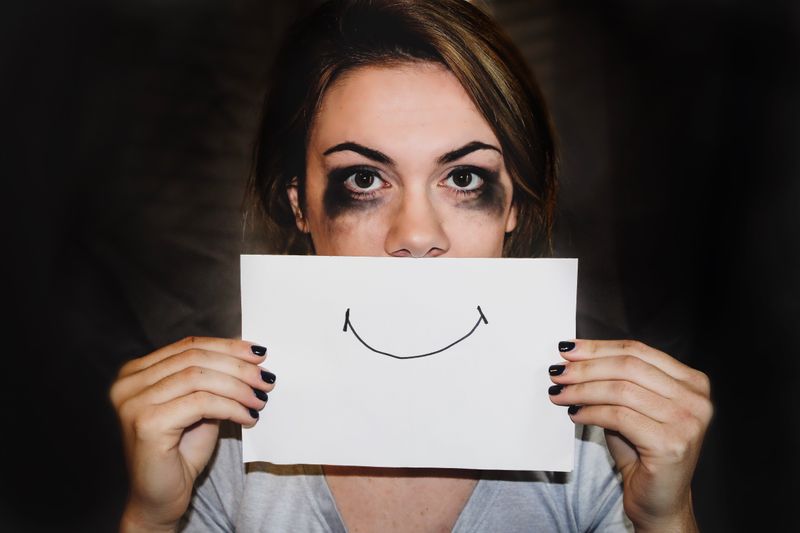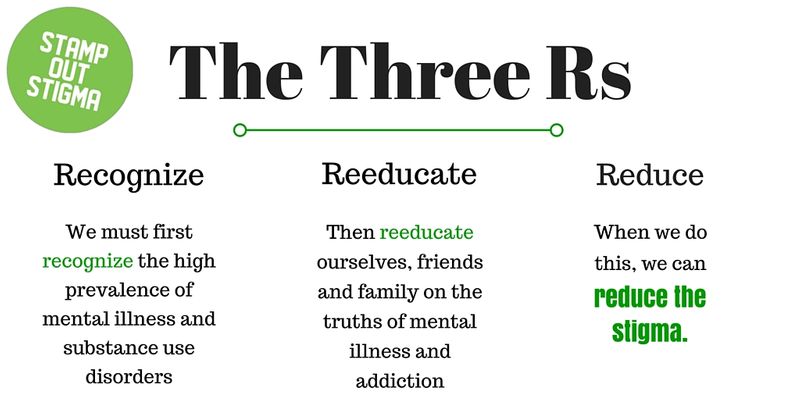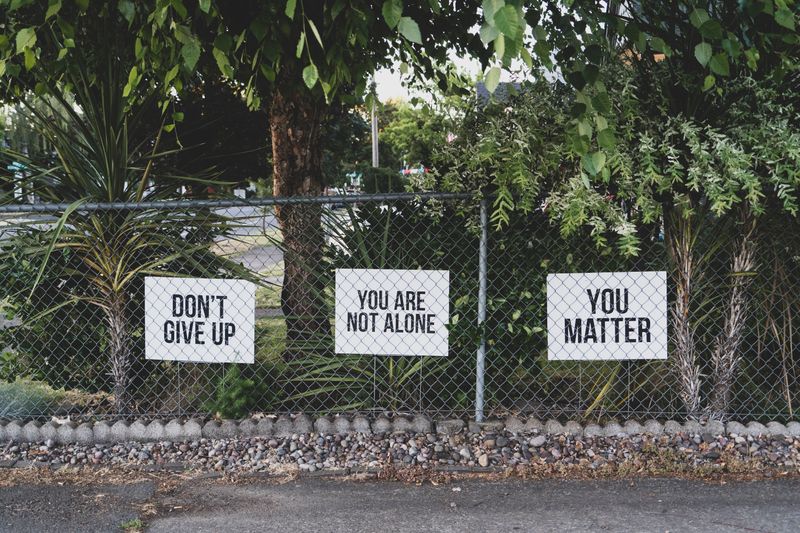There are many reasons why people develop mental illness.
Some are genetic or biological.
Some are a result of childhood trauma or overwhelming stress at school, work or home.
Some stem from environmental injustice or violence.
Sometimes, we simply don't know.
Regardless of the reasons, mental health issues are health problems just like cancer, arthritis or diabetes.
So why do we treat mental health issues and physical health issues differently?
The answer is Stigma. Stigma means having a negative attitude.How can we change the stigma?  Challenging the stigma associated with mental illness takes understanding, education, and a closer look at our own attitudes toward health.
Challenging the stigma associated with mental illness takes understanding, education, and a closer look at our own attitudes toward health.
The Effects of Stigma
Fear and misunderstanding often lead to stigma against people with mental illness and addictions, even among service providers. It's one of the main reasons why many people don't consider mental health a real health issue.
This prejudice and discrimination leads to feelings of hopelessness and shame in those struggling to cope with their situation, creating a serious barrier to diagnosis and treatment.

Stigma seriously affects the well-being of those who experience it.
Stigma affects people while they are experiencing problems, while they are in treatment, while they are healing and even when their mental health problem is a distant memory.
Stigma profoundly changes how people feel about themselves and the way others see them.
The Three R's
We can use the three R's: Recognize, Reeducate, and Reduce, to challenge mental health stigma.

Quiz
What are the Three R's?
The Seven Things You Can Do to Reduce Stigma
Taking action doesn't have to be hard. Start small, and find small, everyday opportunities to challenge mental health stigma.
Know the facts. Educate yourself about mental illness including substance use disorders.
Be aware of your attitudes and behaviour. Examine your own judgmental thinking, reinforced by upbringing and society.
Choose your words carefully. The way we speak can affect the attitudes of others.
Educate others. Pass on facts and positive attitudes; challenge myths and stereotypes.
Focus on the positive. Mental illness, including addictions, are only part of anyone's larger picture.
Support people. Treat everyone with dignity and respect; offer support and encouragement.
Include everyone. It's against the law to deny jobs or services to anyone with these health issues.

Put Yourself In Their Shoes
As you take steps to challenge mental health stigma, you might realize that you have to unlearn some stereotypes as well. One way to do this mindfully is to practice empathy.
The next time you find yourself judging someone who might be experiencing mental health challenges, ask yourself:
What might they be dealing with that I'm not aware of?
How would I want to be treated in that situation?
Practicing empathy will help you to relate better to others. Making it a regular practice will help you to undo mental health stigma in your own attitudes and actions.
Quiz
Which of these reflects an empathetic attitude?
Summary
What action will you commit to today, to help end mental health stigma?
Challenging this stigma starts with each of us. Pick at least one tip from this Byte and make it your mission to put it into action this week.

Your feedback matters to us.
This Byte helped me better understand the topic.